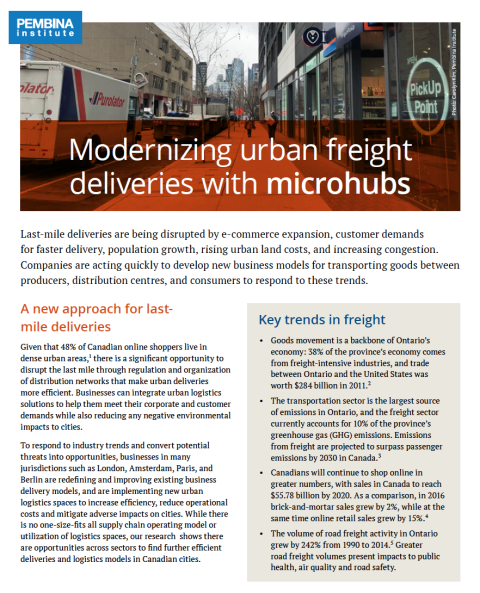Last-mile deliveries are being disrupted by e-commerce expansion, customer demands for faster delivery, population growth, rising urban land costs, and increasing congestion. Companies are acting quickly to develop new business models for transporting goods between producers, distribution centres, and consumers to respond to these trends. In these factsheets, we examine two possible ways to modernize urban freight deliveries: microhubs and cargo cycles.
Given that 48% of Canadian online shoppers live in dense urban areas, there is a significant opportunity to disrupt the last mile through regulation and organization of distribution networks that make urban deliveries more efficient. Businesses can integrate urban logistics solutions — like delivery microhubs — to help them meet their corporate and customer demands while also reducing any negative environmental impacts to cities.
Another possible solution is the introduction of cyclelogistics — a zero-carbon delivery approach and as cycles take up less space than conventional vehicles, it has the potential to address many of the challenges associated with last-mile deliveries in urban centres, including congestion, emissions, and limited curbside space. Cyclelogistics is also beneficial to businesses by reducing fuel costs and parking fees, and offering branding opportunities.






